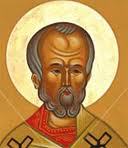Thomas L. Thompson, Professor of Theology, National Endowment for the Humanities Fellow and editor of biblical studies journals, wrote in 2005 that historical Jesus scholars have always just assumed that Jesus existed:
Twentieth-century scholarship, with its faith in history, assumed a historical Jesus as its starting point. It shared Schweitzer’s personal dilemma: a choice between a Jesus who fits modern visions of Christianity and Mark’s failed prophet. But they always assumed there was a historical Jesus to describe. (p. 7, The Messiah Myth (2005) by Thomas L. Thompson)
Now Professor Bart Ehrman has said the same thing. He even says he believes he is the first scholar ever to set out a sustained argument to prove Jesus existed!
I realized when doing my research for the book that since New Testament scholars have never taken mythicists seriously, they have never seen a need to argue against their views, which means that even though experts in the study of the historical Jesus (and Christian origins, and classics, and ancient history, etc etc.) have known in the back of their minds all sorts of powerful reasons for simply assuming that Jesus existed, no one had ever tried to prove it. Odd as it may seem, no scholar of the New Testament has ever thought to put together a sustained argument that Jesus must have lived. To my knowledge, I was the first to try it, and it was a very interesting intellectual exercise. How do you prove that someone from 2000 years ago actually lived? I have to say, it was terrifically enlightening, engaging, and fun to think through all the issues and come up with all the arguments. I think really almost any New Testament scholar could have done it. But it ended up being lucky me. (Did Jesus Exist as Part One, accessed 14th May, 2012, my bolding and italics)
Can you imagine a biologist or paleontologist posting on a blog “no-one has ever tried to prove evolution”? Or a physicist saying “no-one has ever tried to prove the laws of physics”?
And note, further, the way Ehrman implies he went about this novel exercise of actually, for the first time in his life, trying to set out “a sustained argument” that Jesus existed. No references are made to historical methodologies. He simply sat down and thought it all up off the top of his erudite head. That he had never thought this through before, his neglect of historical methodology, even elementary logic, shows through when he writes some excruciatingly embarrassing pages in chapter two of his book Did Jesus Exist? Continue reading “Ehrman Confesses: Scholars Never Have Tried to Prove Jesus Existed”

